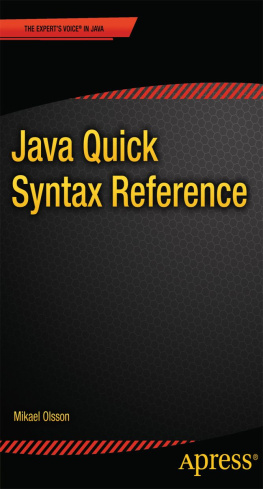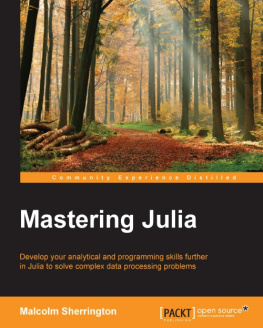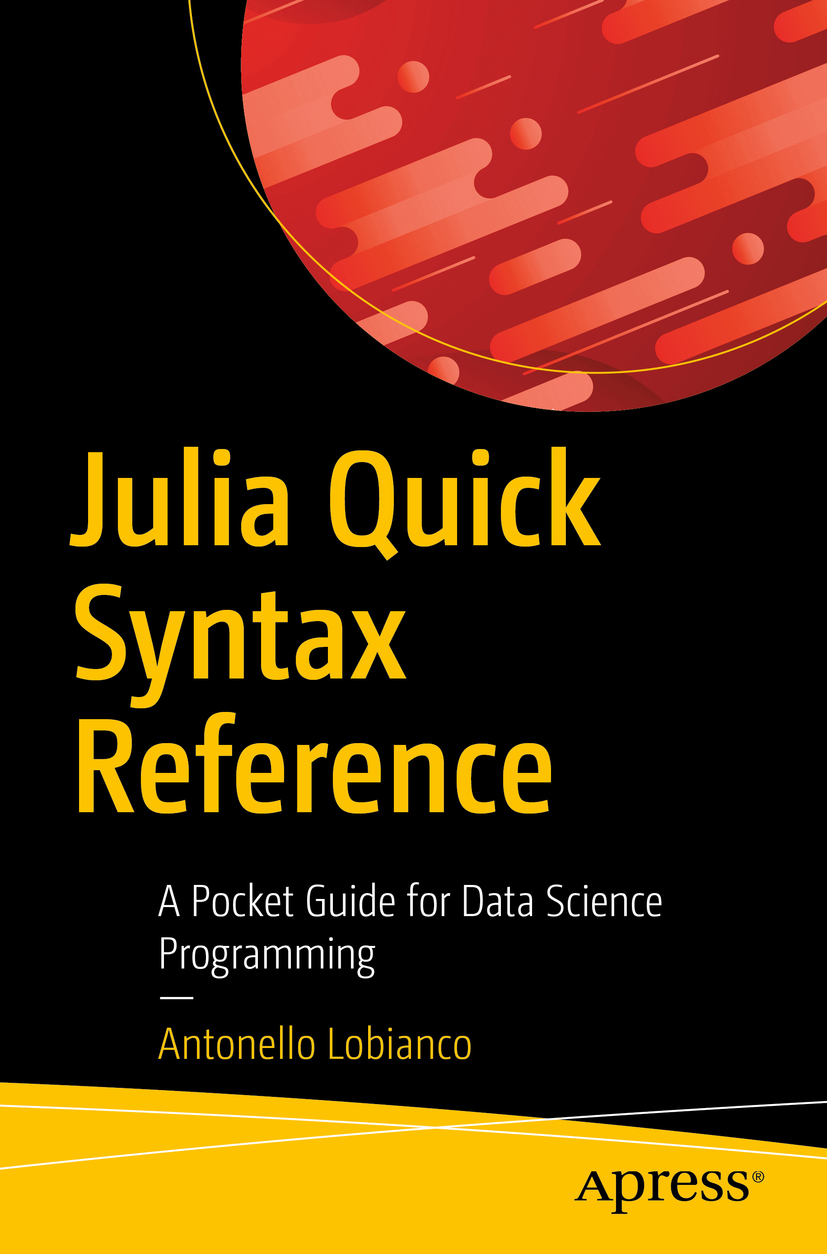Antonello Lobianco - Julia Quick Syntax Reference: A Pocket Guide for Data Science Programming
Here you can read online Antonello Lobianco - Julia Quick Syntax Reference: A Pocket Guide for Data Science Programming full text of the book (entire story) in english for free. Download pdf and epub, get meaning, cover and reviews about this ebook. year: 2019, publisher: Apress, genre: Home and family. Description of the work, (preface) as well as reviews are available. Best literature library LitArk.com created for fans of good reading and offers a wide selection of genres:
Romance novel
Science fiction
Adventure
Detective
Science
History
Home and family
Prose
Art
Politics
Computer
Non-fiction
Religion
Business
Children
Humor
Choose a favorite category and find really read worthwhile books. Enjoy immersion in the world of imagination, feel the emotions of the characters or learn something new for yourself, make an fascinating discovery.
- Book:Julia Quick Syntax Reference: A Pocket Guide for Data Science Programming
- Author:
- Publisher:Apress
- Genre:
- Year:2019
- Rating:3 / 5
- Favourites:Add to favourites
- Your mark:
Julia Quick Syntax Reference: A Pocket Guide for Data Science Programming: summary, description and annotation
We offer to read an annotation, description, summary or preface (depends on what the author of the book "Julia Quick Syntax Reference: A Pocket Guide for Data Science Programming" wrote himself). If you haven't found the necessary information about the book — write in the comments, we will try to find it.
This book provides an introduction that reveals basic Julia structures and syntax; discusses data types, control flow, functions, input/output, exceptions, metaprogramming, performance, and more. Additionally, youll learn to interface Julia with other programming languages such as R for statistics or Python. You will learn how to use Julia packages for data analysis, numerical optimization and symbolic computation, and how to disseminate your results in dynamic documents or interactive web pages.
In this book, the focus is on providing important information as quickly as possible. It is packed with useful information and is a must-have for any Julia programmer.
What You Will Learn
Set up the software needed to run Julia and your first Hello World example
Work with types and the different containers that Julia makes available for rapid application development
Use vectorized, classical loop-based code, logical operators, and blocks
Explore Julia functions by looking at arguments, return values, polymorphism, parameters, anonymous functions, and broadcasts
Build custom structures in Julia
Interface Julia with other languages such as C/C++, Python, and R
Program a richer API, modifying the code before it is executed using expressions, symbols, macros, quote blocks, and more
Maximize your codes performance
Who This Book Is For
Experienced programmers new to Julia, as well as existing Julia coders new to the now stable Julia version 1.0 release.
Antonello Lobianco: author's other books
Who wrote Julia Quick Syntax Reference: A Pocket Guide for Data Science Programming? Find out the surname, the name of the author of the book and a list of all author's works by series.

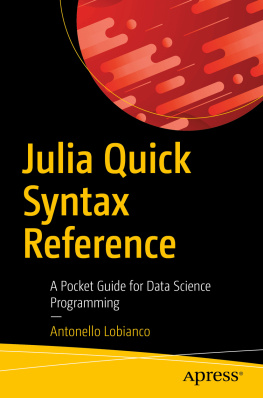
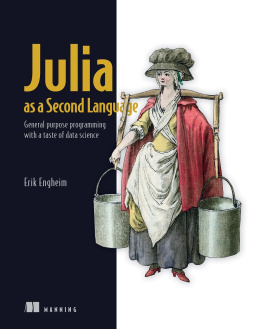
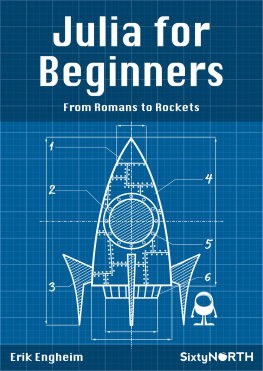
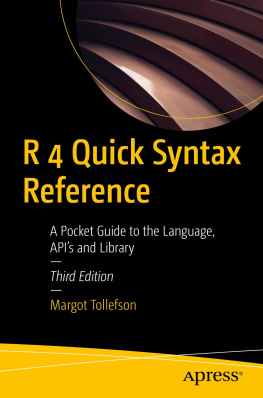
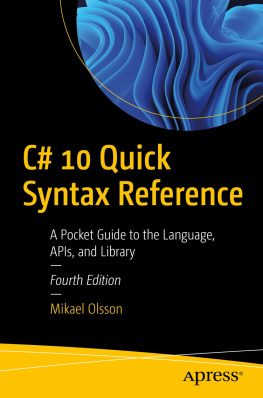

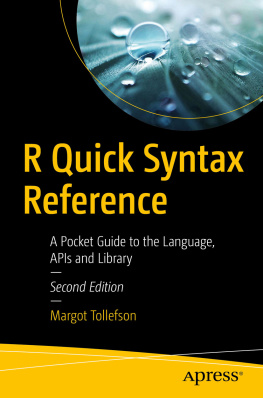

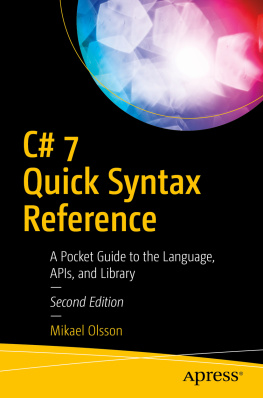
![Zacharias Voulgaris PhD [Zacharias Voulgaris PhD] - Julia for Data Science](/uploads/posts/book/119586/thumbs/zacharias-voulgaris-phd-zacharias-voulgaris-phd.jpg)
